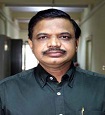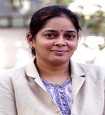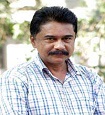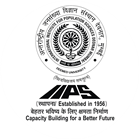- About IIPS
- Academics
- Study @ IIPS
- Departments
- Department of Bio-Statistics and Epidemiology
- Department of Fertility & Social Demography
- Department of Public Health & Mortality Studies
- Department of Migration & Urban Studies
- Department of Population & Development
- Department of Family & Generations
- Department of Survey Research & Data Analytics
- Department of Extra Mural Studies and Distance Education
- Centers
- Controller of Examination
- Programme
- Distance Education (EMS)
- Training
- Facilities/Services
- Resources
- Virtual Learning
- Digital Initiatives (MHRD)
- Notice
- Seminars / Workshops / Conferences
- Conferences
- Publications
- Seminars
- Sponsored Research
- Workshops
- Students exchange
- International Exchange
- National Exchange
- Admission
- Admission Bulletin
- TIME-TABLE For Admission 2021-22
- Model Question Papers
- Fellowships
- Distance Education (EMS)
- International Students
- Visa Information
- Prospectus
- Administration
- Faculty & Staff
- Research & Publications
- Research Projects
- Publications
- Recent Publications
- Library
- Information
- Right to Information
- Annual Report
- Director's Report
- Cells & Commitees
- Cells
- Commitees
- Online Facilities
- Employee's Corner
- Student's Corner
- Memorial Lectures
- Convocation
- IIPS Newsletters
- COVID 19 Information
- Life @ IIPS
Short Term Training Programmes
- Home
- Academics
- Training
- Short Term Training Programmes
SHORT TERM TRAINING PROGRAMMES
The International Institute for Population Sciences (I.I.P.S) has over the span of six decades established itself world over as a premier institution specializing in teaching as well as research in the field of Population Sciences. In addition to regular teaching and research activities, the Institute has over the years leveraged its expertise in the field to successfully organize various short term tailored made training programs covering various aspects of Population and health. The training programs are for the in-service officials, researchers working in NGOs, doctoral and post-doctoral candidates and independent researchers working in the field of Population and Health, and are funded by various international and national funding agencies including WHO, UNFPA, Nordic Council of India, Asian Development Bank, Government of India, State governments, University Grant Commission to name a few. Some of the most popular courses organized by the Institute in the past are:
- Demographic Techniques and Application of Demographic Software Packages.
- Life Tables Construction and Population Projection.
- Analysis of Large Scale Sample Survey data in Demographic and Health Research.
- Gender and Reproductive Health.
- Qualitative Research Methods in Demographic and Health Research.
- Analysis of Vital Statistics from Civil Registration System.
- Strengthening State Plans for Human Development.
Besides, the Institute has also organized customized training programs for various ministries in India (central and state governments), Myanmar, UNFPA, Nordic Council of India, various international and national non-Governmental organizations, to name a few.
The Institute proposes to organize the following short term training programmes in the current academic session 2019-2020:
1. Gender Analysis of Health: Workshop for Researchers using Large Scale Data Sets:
Gender Analysis has not been adequately mainstreamed into health research. Only with the recognition of Gender as an axis of analysis will it be possible to examine its impact on health outcomes. The workshop aims to enable young researchers recognize the relevance of gender on health outcomes using large scale data sets like NFHS, NSSO, GATS, DLHS, etc. Gender analysis to facilitate an identification of the possible ways in which gender norms and values, roles and responsibilities and access to and control over resources shape the following outcomes:
- Vulnerability in terms of incidence, prevalence or response to vaccines;
- Health seeking behavior (care seeking or not seeking pattern as well as continuation and discontinuation of treatment);
- Ability to access health services;
- Preventive and treatment options and responses to treatment or rehabilitation;
- Experience with health services and health providers;
- Outcome of health problem-in terms of detection, prevention, recovery, rehabilitation, disability, death;
- Consequences- in terms of economic, social and attitudinal.
Schedule: 10- 15 October, 2019
Duration: One-week (six working days)
Intended participants: Ph.D. students and young researchers working on Population and Health issues having knowledge of STATA / SPSS / R and able to work with large scale survey data sets.
2. Large Scale Sample Surveys- Data Users Training Workshop
Sample Surveys as a source of population & health information has been an integral part of IIPS. In recent years the Institute has been able to successfully conduct many large scale sample surveys like National Family Health Survey (NFHS), District Level Household Survey (DLHS), Assessment of National Rural Health Mission (NRHM), YOUTH in India Project, Global Adult Tobacco Survey (GATS India Project), Research Intervention on Sexual Health Theory to Action (RISHTA Project), and Nutrition Surveys and Longitudinal Aging Study in India (LASI), etc.
Objectives:
In view of the expertise IIPS has developed in the field of Large Scale Sample Surveys, the training workshop aims to build capacity of researchers working in the field of population & health to engage deeply in the analysis and dissemination of datasets collected through large scale sample surveys in the country. Hands on training would be provided to the participants using the data collected through various rounds of National Family Health Surveys (NFHS) by the Institute.
Contents:
The one-week short term training workshop would cover among others the following aspects of Large Scale Sample Surveys: Sampling; Sampling Weights; Survey Instruments; Mapping & House Listing; Selection of Sample; Sampling and Non-Sampling Errors; Ethical Issues; Data Analysis, etc. with ample time for hands on exercises.
Schedule: 17th – 22nd of February, 2020.
Duration: One-week (six working days).
Intended participants: Young full-time research scholars pursuing their doctoral work in the field of population & health are encouraged to apply for the training workshop. Early career researchers are also encouraged to apply particularly those working at the Population Research Centers (PRCs).
3. Qualitative Research Methods in Demographic and Health Research
The proposed short term training programme on Qualitative Research Methods in Demographic and Health Research aims to build capacity on theoretical construct of various types of qualitative methods and techniques, data collection and their uses in population and health research.
The training programme would cover the following aspects of Qualitative Research: Theoretical paradigms; Research strategies; Sampling methods and design; Data Collection Methods; Data Analysis; Use of Software Packages in Qualitative Research; Report writing; Ethical Issues.
Schedule: to be announced.
Duration: One-week (six working days).
Intended participants: Teachers/Researchers working in research institutions/organizations, research scholars, NGO workers, Independent researchers.
Further information can be had from the following contact persons:
-
 Dr. T.V. SekherProfessor022-42372407022-25563257
Dr. T.V. SekherProfessor022-42372407022-25563257 -
 Dr. Dipti GovilAssistant Professor022-42372498022-25563257
Dr. Dipti GovilAssistant Professor022-42372498022-25563257 -
 Mr. B.S. KumarAssistant Research Officer022-022-25563257
Mr. B.S. KumarAssistant Research Officer022-022-25563257 -
 Dr. P. MurugesanSr. Research Assistant022-42372502022-25563257
Dr. P. MurugesanSr. Research Assistant022-42372502022-25563257

